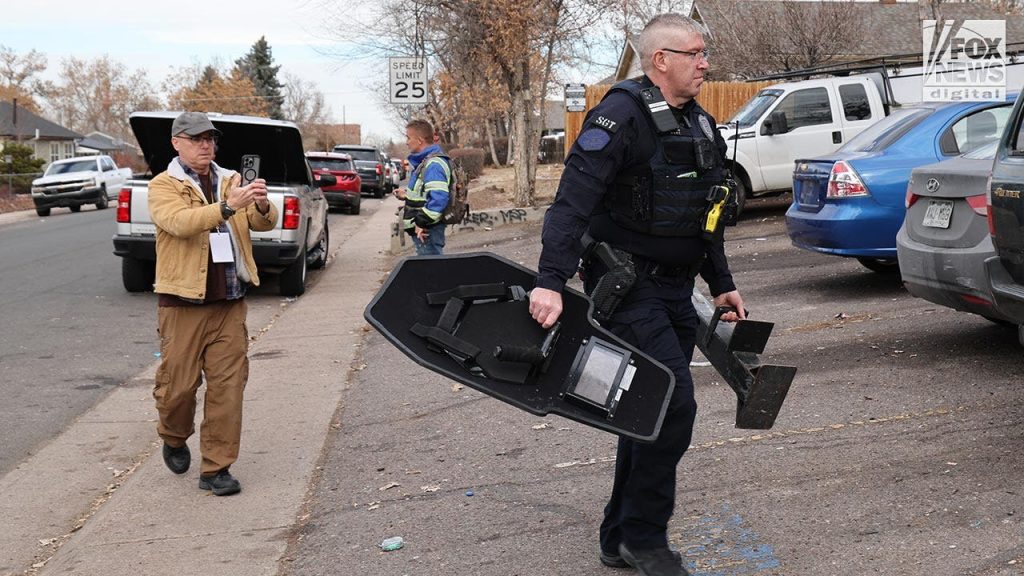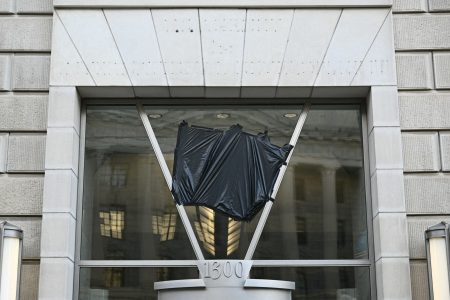The Aurora, Colorado, community is reeling from a violent home invasion and kidnapping that took place in the early hours of Tuesday morning, an incident that has now led to the detention of 19 migrants. The disturbing event unfolded at The Edge at Lowry Apartments, where two victims were brutally beaten, bound, and forcibly taken to another apartment within the same complex. One of the victims suffered a stab wound but is expected to recover. Both remain hospitalized for treatment. The investigation has rapidly expanded, with initial reports indicating the involvement of 14 migrants escalating to 19 with the execution of an additional warrant. The gravity of the situation is underscored by the potential connection to Tren de Aragua (TdA), a notorious Venezuelan gang known for its violent activities.
Sixteen of the detained individuals have been identified by Immigration and Customs Enforcement (ICE) as Venezuelan nationals residing in the U.S. without authorization. These individuals are suspected of having ties to TdA, either as members or associates. ICE has confirmed that these 16 individuals will remain in their custody pending removal proceedings or hearings before an immigration judge. While Aurora Police Chief Todd Chamberlain initially labeled the home invasion a “gang incident,” the official confirmation linking the event to TdA is still pending as authorities continue their meticulous investigation. Joe Moylan, a representative for the Aurora Police Department, stated that the department is collaborating closely with federal authorities, including Homeland Security Investigations, to fully identify all individuals involved and determine the full extent of TdA’s potential involvement.
TdA, a transnational criminal organization originating in Venezuela, has cast a long shadow over Aurora for over a year, terrorizing residents with its violent acts. The gang’s escalating presence has raised significant concerns within the community and among law enforcement, with some characterizing TdA as ideological terrorists disguised as a street gang. The potential link between this violent home invasion and TdA adds another layer of complexity to the already disturbing incident, raising questions about the gang’s growing influence and the challenges it poses to public safety.
The investigation remains dynamic, with Aurora police continuing to gather evidence and pursue leads. A subsequent warrant served at The Edge at Lowry Apartments led to the detention of five additional migrants for questioning, further highlighting the evolving nature of the case. The Aurora police chief is expected to provide a more comprehensive update on the investigation once more details are confirmed and corroborated. This will likely include addressing the crucial question of whether the home invasion was indeed a gang-related incident and the specific roles of those detained.
The incident has also ignited debate about the impact of sanctuary policies in Colorado and Denver. Roger Hudson, a city council member in nearby Castle Pines, has been vocal in his criticism of these policies, arguing that they hinder law enforcement’s ability to protect residents from dangerous criminal organizations like TdA. He believes that these policies create an environment conducive to lawlessness and compromise public safety. Hudson’s perspective reflects a growing concern among some that sanctuary policies, while intended to protect vulnerable populations, may inadvertently create havens for criminal elements.
This escalating situation in Aurora underscores the complex challenges faced by communities grappling with the influx of migrants and the potential for criminal activity. The incident has brought into sharp focus the need for a thorough investigation, effective law enforcement collaboration, and a broader conversation about the impact of sanctuary policies on public safety. As the investigation unfolds, the community awaits further information and reassurances that measures will be taken to address the underlying issues that contributed to this disturbing event and to prevent similar incidents in the future. The case serves as a stark reminder of the delicate balance between providing refuge and ensuring the safety and security of all residents.










